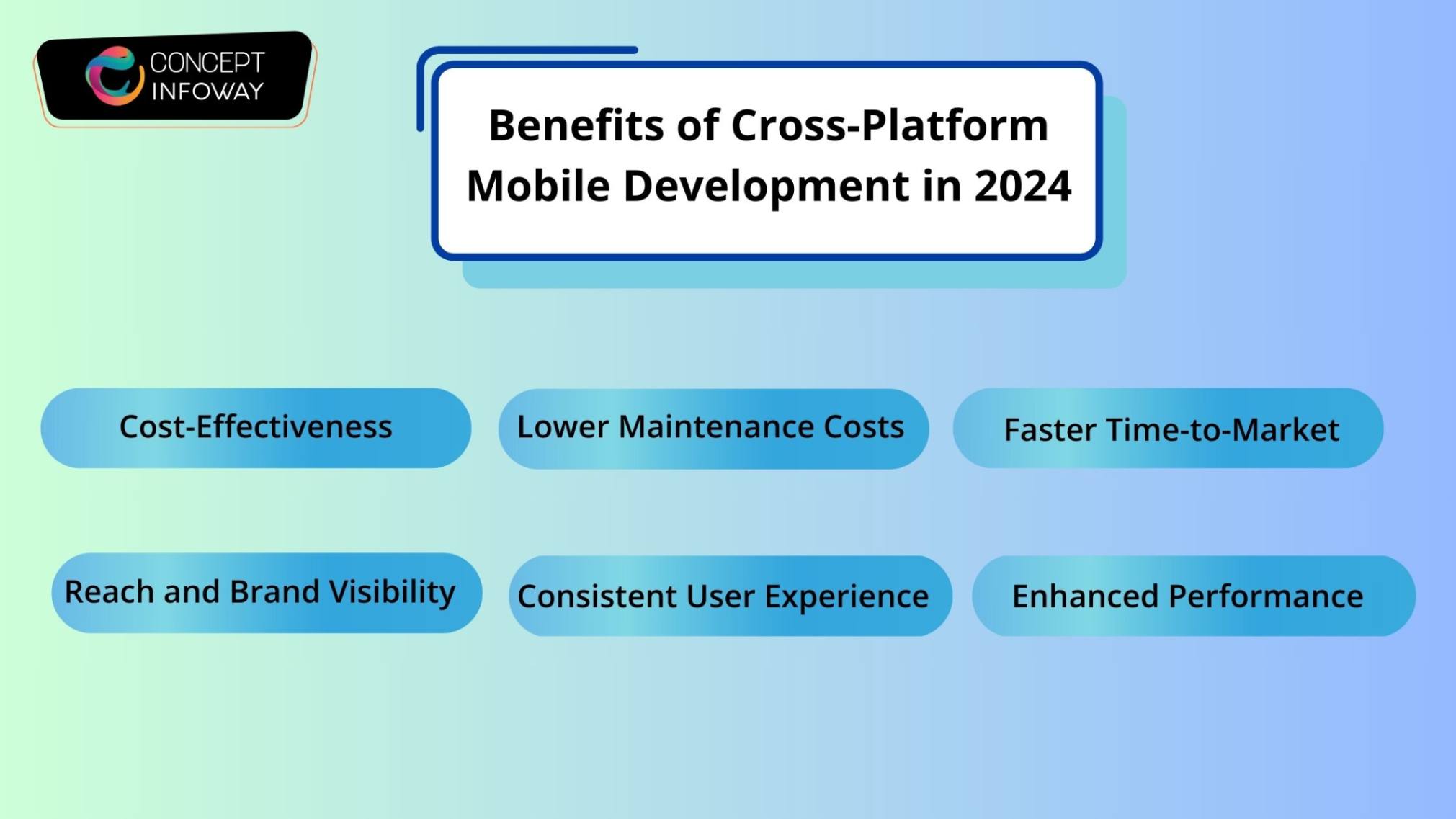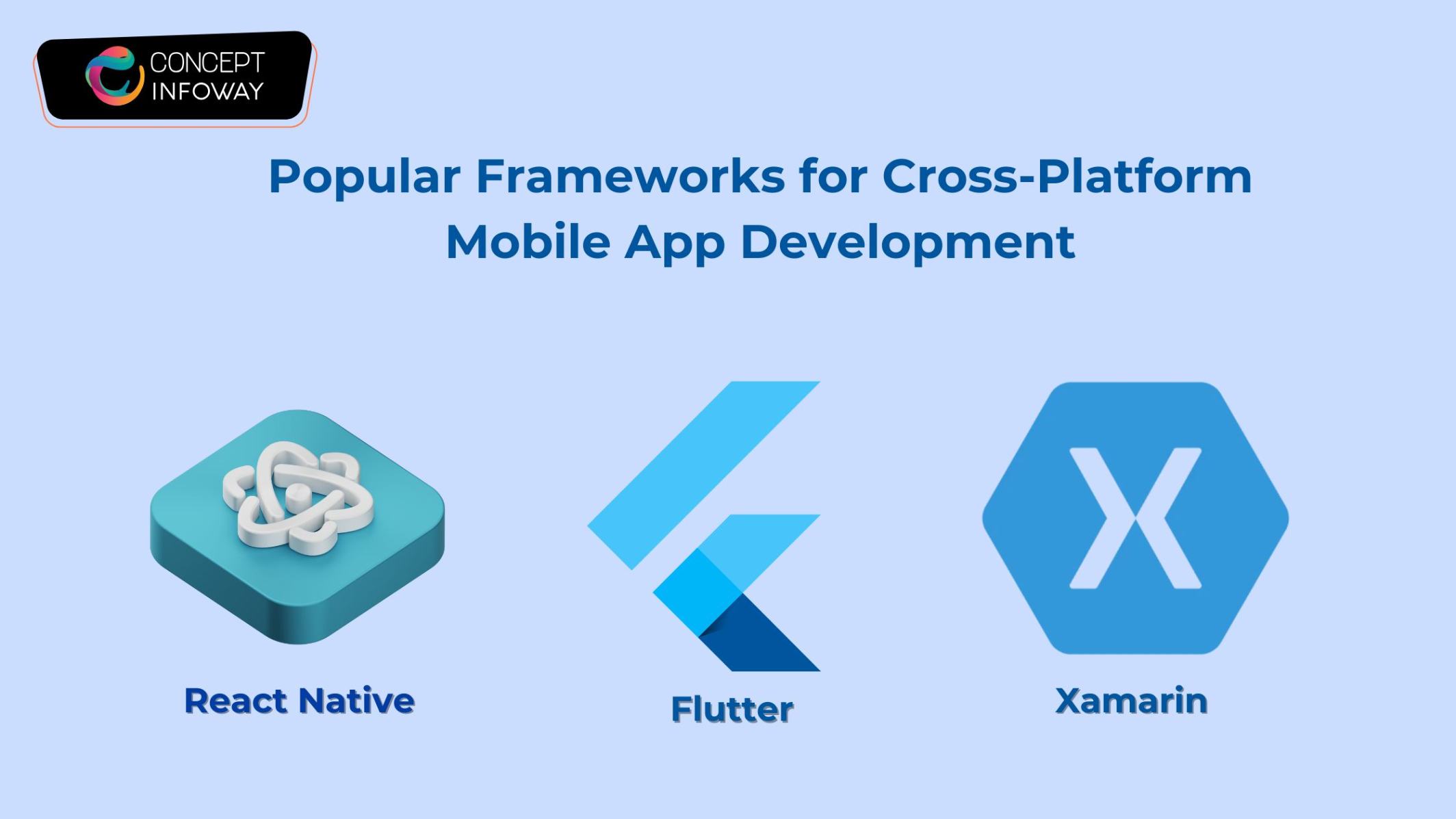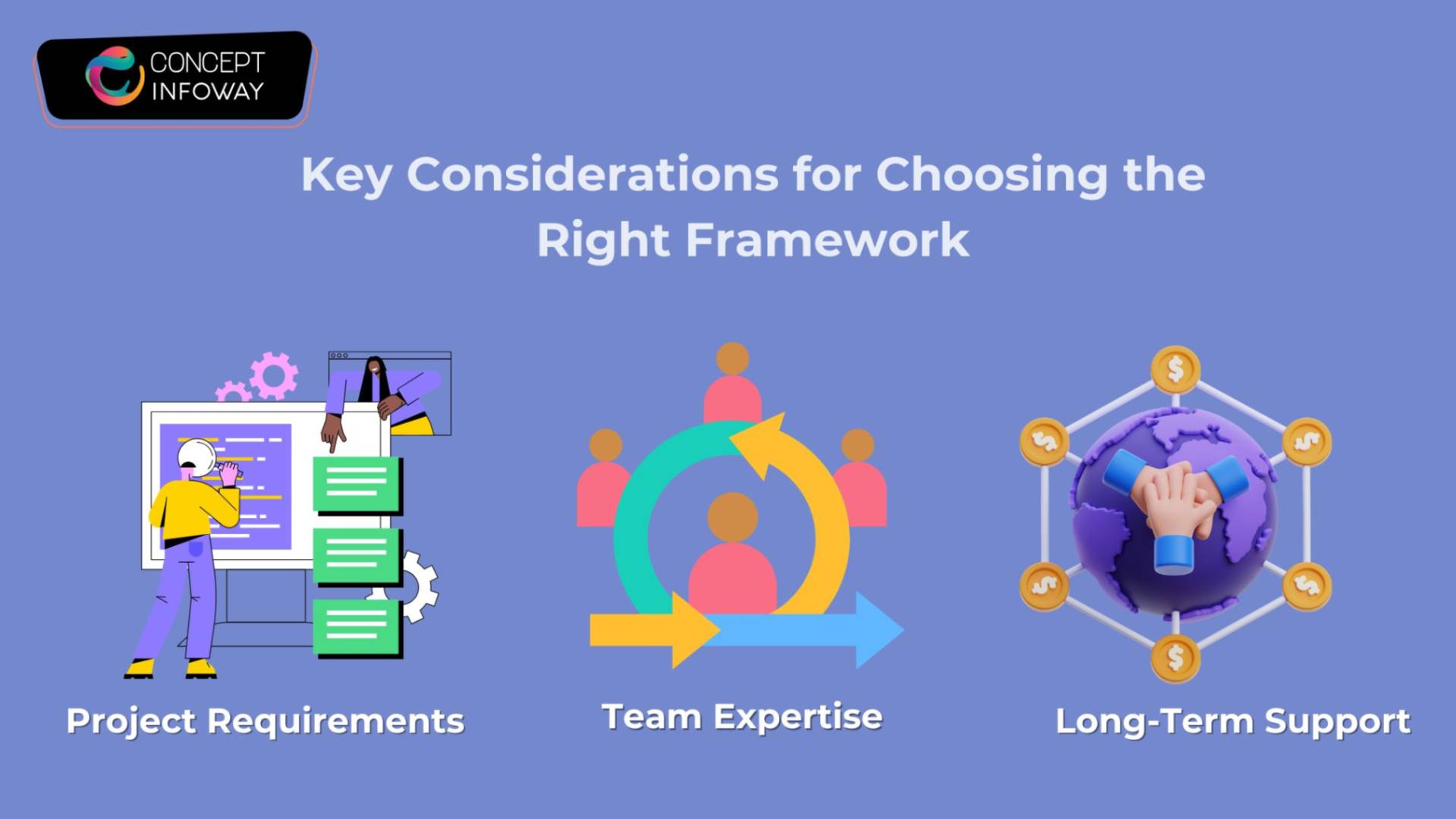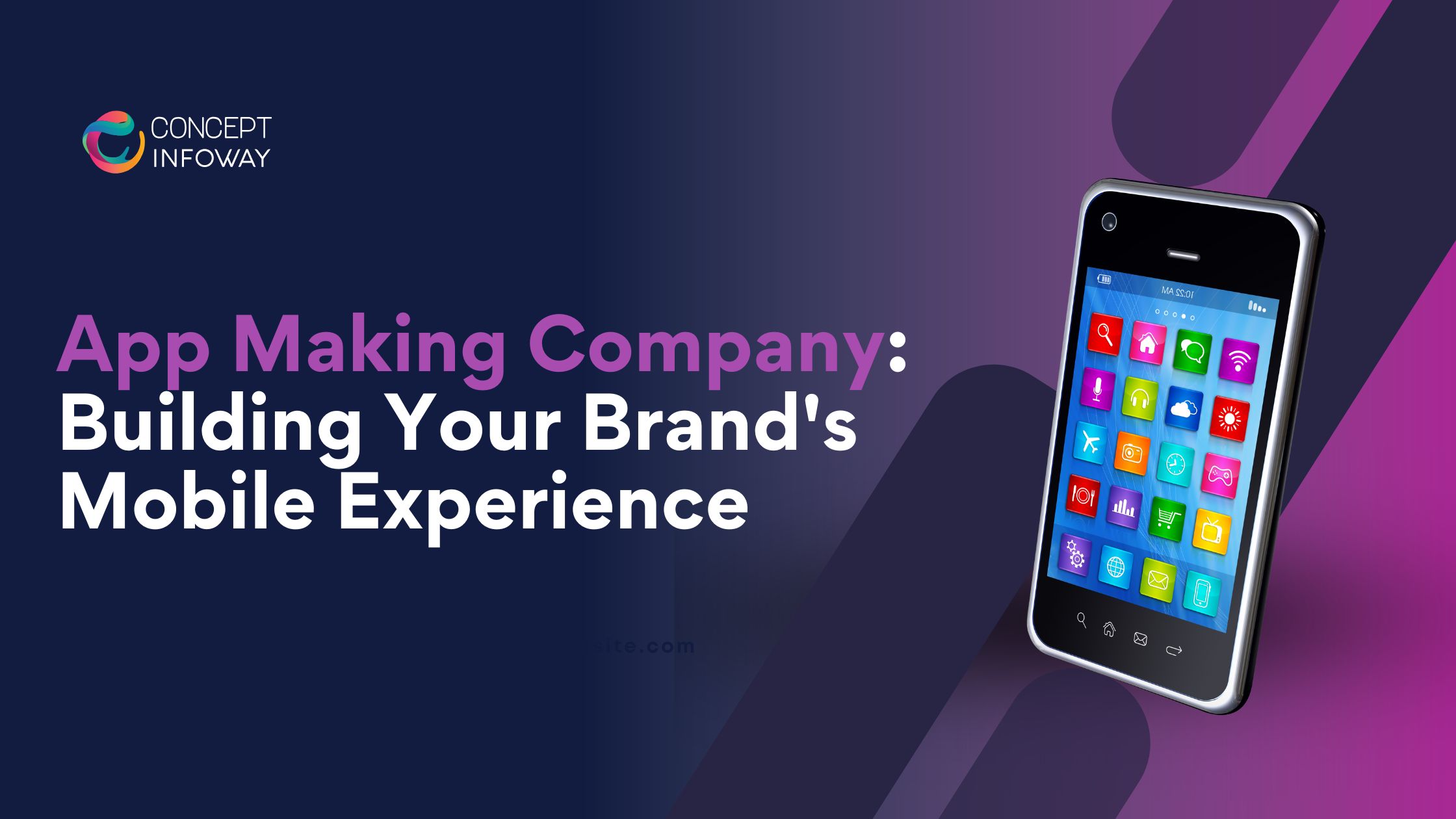
Unlock New Revenue Streams: Cross Platform Mobile Development
In today’s fast-paced digital world, mobile apps have become an essential tool for businesses looking to engage customers, improve user experience, and drive growth. As mobile technology continues to evolve, the need for companies to create apps that work seamlessly across multiple devices has never been more critical. Enter Cross Platform Mobile Development—a powerful approach reshaping the mobile development landscape. In this ever-changing market, choosing the right development strategy can be the difference between success and missed opportunities. Cross-Platform Mobile App Development offers a unique opportunity for businesses to expand their reach, streamline development, and deliver a consistent user experience on both iOS and Android.
The demand for apps is skyrocketing, but businesses are often faced with the challenge of creating separate apps for iOS and Android platforms. Developing two distinct apps requires duplicating efforts, increasing costs, and elongating development timelines. With such high stakes, businesses need a solution that optimizes resources while ensuring that their app performs excellently across all devices. This is where Cross Platform Mobile Development comes into play. It enables developers to create a single app that functions seamlessly on both major platforms, allowing businesses to cut down on development costs, reduce time-to-market, and increase their overall reach.
However, while Cross-Platform Mobile Development presents an opportunity for businesses to grow, it does come with its own set of challenges. Traditional development methods demand separate codebases for iOS and Android, resulting in duplicated efforts for teams and higher maintenance costs. The long development timelines also delay the ability to respond quickly to market changes or customer needs. Cross-platform development addresses these issues by allowing businesses to invest in a single codebase, which can be deployed across multiple platforms. By leveraging tools and frameworks like React Native, Flutter, and Xamarin, businesses can build high-performance apps that maintain the look and feel of native apps, while also being cost-effective and time efficient.
Read Also: Boost Engagement and Drive Business Growth
In addition to the immediate benefits of Cross Platform Mobile Development, it also supports scalability and flexibility. For businesses looking to expand their user base, cross-platform apps help ensure that they are not limited to a particular operating system. Whether you are targeting customers on Android, iOS, or both, Cross Platform Mobile Development ensures that your app delivers a consistent experience across all devices and operating systems. Moreover, this approach allows businesses to make rapid updates and changes, which is essential in today’s competitive environment.
For businesses searching for local expertise, searching for Cross Platform Mobile Development near me can connect you with talented cross-platform mobile developers who are familiar with the latest tools and trends in the industry. Partnering with experienced cross-platform mobile developers ensures that you are using the most efficient development strategies for your app, leading to faster delivery and more impactful results. Whether you are a startup or an established business, cross-platform development has the potential to unlock new opportunities and drive growth.
As we move into 2024, the importance of Cross Platform Mobile Development in mobile app strategy cannot be overstated. By embracing this modern development approach, businesses can not only enhance their app’s functionality but also ensure that they remain competitive in a crowded market. So, that for which are you waiting? Continue reading to discover how Cross Platform Mobile Development can help your business thrive in this dynamic digital landscape.
Benefits of Cross-Platform Mobile Development in 2024: Unlocking the Future of Mobile App Strategy
In the competitive landscape of mobile app development, businesses are constantly seeking strategies to create high-performing apps while managing costs, reducing development time, and reaching a broader audience. One such solution gaining immense traction in 2024 is Cross Platform Mobile Development. By leveraging a single codebase for both iOS and Android platforms, this approach delivers multiple advantages, including cost-effectiveness, faster time-to-market, a wider reach, and a consistent user experience. In this section, we will delve into the key benefits of Cross Platform Mobile Development and explore why businesses are increasingly adopting it as a strategic approach for mobile app development.
1. Cost-Effectiveness
One of the most compelling reasons businesses choose Cross Platform Mobile Development is the significant cost savings it offers. Traditional mobile development often requires creating separate codebases for iOS and Android, which means hiring separate development teams for each platform or doubling the effort of a single team. This not only increases the development cost but also prolongs the overall project timeline.
In contrast, Cross Platform Mobile Development enables developers to write a single codebase that can run on both iOS and Android, dramatically reducing the resources required. By eliminating the need for two separate development processes, businesses can reduce their initial investment and focus those savings on other critical areas of their business.
Additionally, ongoing maintenance and updates are simplified when using a single codebase. Updates can be implemented once and deployed across both platforms, reducing the time and costs associated with maintaining separate apps for iOS and Android. This makes Cross Platform Mobile Development an ideal solution for businesses seeking to optimize their budget and maximize their return on investment.
2. Lower Maintenance Costs
Maintaining separate apps for iOS and Android requires two distinct teams working on bug fixes, updates, and compatibility issues for each platform. This not only increases operational costs but also complicates the management process. However, with Cross Platform Mobile Development, businesses can streamline their maintenance efforts by working with a single codebase. Any bugs or issues identified can be fixed once and then deployed across both platforms, reducing the need for duplicate efforts.
Furthermore, Cross Platform Mobile Development tools such as Flutter, React Native, and Xamarin allow for the rapid identification and resolution of issues. These tools enable developers to create robust, scalable apps while maintaining consistent quality and performance across both iOS and Android. This centralized approach to maintenance not only cuts down on costs but also ensures a more efficient workflow.
3. Faster Time-to-Market
In today’s fast-moving business world, speed is everything. The ability to bring a mobile app to market quickly can provide businesses with a competitive edge, enabling them to capitalize on trends, gather user feedback, and refine their product faster than their competitors. Cross Platform Mobile Development significantly accelerates the development process by allowing developers to write a single codebase that works across both iOS and Android.
This reduces development time considerably, as developers do not need to build two separate apps simultaneously. By leveraging frameworks like React Native and Flutter, developers can reuse a substantial portion of the code, speeding up development cycles and ensuring that the app is ready for release much faster. The ability to launch on both platforms at the same time also enables businesses to meet market demands quickly, which can be a key factor in their success.
Simultaneous deployment across iOS and Android not only accelerates the development process but also ensures that businesses do not have to wait for one platform to catch up with the other. With Cross Platform Mobile Development, you can avoid the staggered launches often associated with native app development, allowing for a more cohesive and unified release strategy.
4. Wider Reach and Increased Brand Visibility
In today’s mobile-first world, businesses need to reach a large and diverse audience. While iOS and Android dominate the mobile app market, catering to both platforms separately can be resource-intensive and complex. However, Cross Platform Mobile Development offers businesses the opportunity to access a broader audience with a single app.
By using a single codebase that works seamlessly across both iOS and Android, businesses can expand their user base and increase brand visibility. Whether your customers are using Android or iOS, they will have access to the same high-quality app experience, which can help improve customer engagement and loyalty. This unified approach also enhances brand consistency, as users will experience the same app features and user interface (UI) regardless of their device.
For businesses looking to improve their visibility and engagement, searching for Cross Platform Mobile Development near me can connect you with experienced developers who are familiar with the best practices for cross-platform development and can help you maximize your reach. This localized approach ensures you have access to top talent in your area, ensuring your app performs well across both platforms and delivers a seamless experience for your audience.
5. Consistent User Experience Across Platforms
User experience (UX) is paramount when it comes to mobile apps. Discrepancies between the iOS and Android versions of an app can lead to user frustration, lower ratings, and decreased engagement. Fortunately, Cross Platform Mobile Development helps ensure a consistent user experience across both platforms.
By using a shared codebase, businesses can maintain a unified look and feel across their mobile app, regardless of whether users are accessing it on an iPhone or an Android device. Modern cross-platform frameworks like React Native, Flutter, and Xamarin are designed to ensure that the app’s UI/UX remains consistent and optimized across different screen sizes and devices.
This consistency not only enhances the user experience but also increases customer satisfaction. When users encounter similar experiences, regardless of the device they use, they are more likely to engage with the app and remain loyal to the brand. Moreover, a smooth and consistent UX helps build trust with users, which is essential for long-term success.
6. Enhanced Performance
In the past, Cross Platform Mobile Development was often criticized for offering less-than-ideal performance compared to native apps. However, this has changed significantly in recent years. With advancements in development tools and technologies, modern cross-platform apps now offer performance that rivals native apps.
Frameworks like React Native and Flutter provide near-native performance by utilizing platform-specific APIs and optimized rendering engines. This enables businesses to deliver apps that are fast, responsive, and capable of handling complex tasks—while still benefiting from the cost and time savings associated with cross-platform development.
Hire Mobile App Developers?
Get a Free Quote
Choosing the Right Cross-Platform Framework for Your Mobile App Development in 2024
When it comes to Cross Platform Mobile Development, choosing the right framework is a crucial decision that can significantly impact the success of your app. With the growing demand for custom mobile apps and the need for businesses to reach customers on both iOS and Android platforms, cross-platform development has become an essential strategy. However, there are several frameworks available, each offering unique advantages depending on your specific project needs. In this section, we will explore some of the most popular frameworks for Cross Platform Mobile Development—React Native, Flutter, and Xamarin—and compare their performance, development speed, community support, and cost.
Popular Frameworks for Cross-Platform Mobile Development
React Native: A Leader in Cross-Platform Development
React Native, developed by Facebook, has gained immense popularity as one of the leading frameworks for Cross Platform Mobile Development. It allows developers to use JavaScript and React to build apps that run natively on both iOS and Android. React Native’s greatest strength lies in its ability to deliver near-native performance while maintaining a single codebase for both platforms.
Performance: React Native offers impressive performance thanks to its native components and direct access to device APIs. Although it does not match the performance of fully native apps, it offers excellent speed for most use cases. By leveraging native modules, React Native can be extended to handle complex performance requirements, making it an ideal choice for many businesses.
Development Speed: React Native’s hot-reloading feature accelerates development, allowing developers to see changes immediately without recompiling the entire app. This boosts productivity and reduces development time. React Native also has a rich ecosystem of libraries and tools that further expedite development.
Community Support: React Native boasts one of the largest communities of developers, offering extensive documentation, third-party libraries, and plugins. This strong community support means developers can find answers to common issues quickly and access a wealth of resources.
Cost: Because React Native allows developers to write a single codebase for both iOS and Android, it reduces the overall development cost. The faster development process also means lower labor costs, making it a cost-effective choice for businesses.
Flutter: Google’s Innovative Cross-Platform Framework
Flutter, an open-source UI toolkit from Google, is rapidly becoming a strong competitor to React Native in the Cross Platform Mobile Development space. Unlike React Native, which uses JavaScript, Flutter uses Dart programming language and provides a comprehensive SDK that includes everything developers need to build high-quality apps.
Performance: Flutter’s performance is one of its standout features. Since it compiles native ARM code, it offers superior performance compared to other cross-platform frameworks. The UI components are rendered directly by Flutter’s engine, ensuring smooth animations and fast load times.
Development Speed: Flutter’s “hot reload” feature is similar to React Native’s, allowing developers to make changes and immediately view results. Flutter also provides a set of pre-designed widgets, which significantly speed up the development process. These widgets are highly customizable and ensure that the app maintains a consistent look and feel across both platforms.
Community Support: Flutter’s community has been growing rapidly, with an increasing number of developers contributing to the ecosystem. Though smaller than React Native’s, the Flutter community is active and passionate, with an expanding array of plugins and tools available for developers.
Cost: Flutter’s ability to produce high-performance apps quickly and with a single codebase for both platforms lead to significant cost savings. The efficient development process also allows businesses to allocate resources more effectively and reduce the time to market.
Xamarin: A Microsoft Solution for Cross-Platform Development
Xamarin, owned by Microsoft, is a popular choice for Cross Platform Mobile Development within the .NET ecosystem. Xamarin allows developers to write apps in C# and share a sizeable portion of code across iOS, Android, and even Windows platforms. Xamarin provides deep integration with the platform and ensures a native-like experience for users.
Performance: Xamarin uses native APIs, which means it delivers a solid performance that is close to native apps. However, certain complex applications may not perform as optimally as those built with other frameworks like React Native or Flutter, especially in terms of UI rendering.
Development Speed: Xamarin is a mature platform with rich tooling, especially if your team is already familiar with C# and .NET. While the development process is generally fast, Xamarin may require more setup time compared to React Native or Flutter. Additionally, Xamarin’s libraries and tools are primarily designed for Microsoft-based environments, which could limit the flexibility of the development process.
Community Support: Xamarin has dedicated support from Microsoft and the developer community. However, its community is somewhat smaller than that of React Native or Flutter, which could make it more challenging to find ready-made solutions for specific issues.
Cost: While Xamarin can reduce development costs by enabling code reuse, it may require more upfront investment in terms of training and setup if your team is not already familiar with the .NET ecosystem. Additionally, Xamarin’s licensing costs could be a factor for smaller businesses.
Read Also: Ensuring Your Site Looks Great on Every Device
Framework Comparison: Key Factors to Consider
1. Performance
When evaluating Cross Platform Mobile Development frameworks, performance is a key consideration. Both React Native and Flutter offer excellent performance for most applications, though Flutter generally provides better performance thanks to its direct compilation to native ARM code. Xamarin is a solid option for performance but may not be as fluid as Flutter, especially for highly interactive UIs.
2. Development Speed
If time-to-market is a priority for your project, React Native and Flutter are both excellent choices. Their hot-reloading features and extensive libraries help speed up development. Xamarin, while robust, may require more time upfront for setup and integration with the .NET ecosystem, though it can still deliver solid results.
3. Community Support
React Native has the largest community and extensive third-party resources. Flutter is quickly gaining traction, though its community is smaller in comparison. Xamarin benefits from Microsoft’s backing, but its community is not as large or active as the others. For businesses seeking a framework with the broadest support, React Native is likely the best choice.
4. Cost
From a cost perspective, all three frameworks provide cost-saving benefits compared to native app development. However, React Native and Flutter are generally more cost-effective due to their quicker development cycles and broader developer pools. Xamarin may incur higher costs due to licensing and the potential need for specialized .NET developers.
Key Considerations for Choosing the Right Framework
1. Project Requirements
The specific needs of your project will play a big role in determining which framework is best. If your app requires advanced native functionality or a complex user interface, Flutter or Xamarin may be the better choice. If your app is relatively straightforward and you need fast development, React Native might be ideal.
2. Team Expertise
Consider your development team’s experience. If your team is already proficient in JavaScript, React Native might be the most familiar and efficient option. For teams with experience in C# and .NET, Xamarin could be the natural choice. Flutter requires familiarity with Dart, which may have a steeper learning curve.
3. Long-Term Support
Another consideration is the long-term support and scalability of your app. Flutter and React Native are both widely used and supported by large companies (Google and Facebook), ensuring ongoing improvements and updates. Xamarin is backed by Microsoft, making it a strong contender for enterprises already invested in the Microsoft ecosystem.
Why Choose Concept Infoway LLC for Cross Platform Mobile Development?
When it comes to Cross Platform Mobile Development, Concept Infoway LLC stands out as a leader in the field, offering a wealth of experience and a proven track record of successful projects.
Expertise and Experience
With years of expertise in Cross Platform Mobile Development, Concept Infoway LLC has successfully delivered high-quality mobile apps across various industries. Our team of skilled developers is adept at using the latest frameworks, including React Native, Flutter, and Xamarin, ensuring your app is built on a solid foundation.
Proven Track Record
We have worked with businesses of all sizes, from startups to established enterprises, and helped them achieve their mobile app goals. Our portfolio showcases a wide array of successful cross-platform apps that have delivered tangible results for our clients.
InnovatIVe Technology
At Concept Infoway LLC, we use the latest tools and technologies to ensure that your app is built with the most efficient and effective frameworks available. Whether you need React Native, Flutter, or Xamarin, our team is equipped to bring your vision to life using the best tools for the job.
Dedicated Team
Our team of Cross Platform Mobile Developers is committed to your project’s success. With a focus on collaboration and innovation, we work closely with you to ensure that your app meets your specific needs and exceeds your expectations.
Client-Centric Approach
We understand that every business has unique needs. That is why we take a client-centric approach to Cross Platform Mobile Development, tailoring our solutions to your goals and providing ongoing support throughout the development lifecycle.
Frequently Asked Questions – FAQs
Cross-platform mobile development is a software development approach that allows developers to create mobile apps that can run on multiple operating systems, such as iOS and Android, using a single codebase. This approach offers several advantages, including faster development time, reduced costs, and consistent user experiences across different platforms.
The choice between native and cross-platform development depends on numerous factors, including project requirements, team expertise, and budget constraints.
- Native development offers superior performance and access to device-specific features. It is ideal for complex apps that require high performance, such as games or AR/VR applications. However, it requires separate codebases for iOS and Android, which can increase development time and costs.
- Cross-platform development provides faster development time, cost-effectiveness, and a consistent user experience across platforms. It is suitable for a wide range of apps, including business apps, e-commerce apps, and social media apps. However, it may not always match the performance and native look and feel of native apps.
The best cross-platform framework depends on your specific needs and preferences. Some of the most popular options include:
- React Native: Developed by Facebook, React Native allows you to build native-like apps using JavaScript. It offers a large community, extensive documentation, and a component-based architecture.
- Flutter: Developed by Google, Flutter is a relatively new framework that uses its rendering engine to deliver high-performance apps. It offers a rich set of pre-built UI components and a hot reload feature for faster development.
- Xamarin: Developed by Microsoft, Xamarin allows you to build native apps using C#. It provides access to native APIs and integrates well with other Microsoft technologies.
Ultimately, the best choice depends on your team’s expertise, project requirements, and long-term goals.
Cross-platform app development offers numerous advantages that make it an attractive choice for businesses and developers:
- Faster Time-to-Market: Develop and launch apps on multiple platforms simultaneously, reducing development time and accelerating market entry.
- Cost-Effective: Share a sizeable portion of the codebase between iOS and Android, leading to reduced development and maintenance costs.
- Consistent User Experience: Ensure a unified look and feel across different platforms, enhancing brand consistency and user satisfaction.
- Wider Reach: Target a larger audience by reaching users on both iOS and Android devices, maximizing your app’s potential.
- Easier Maintenance: Manage and update your app from a single codebase, streamlining the maintenance process and minimizing the risk of errors.
Cross-platform development is effective because it leverages powerful frameworks and tools that allow developers to write code once and deploy it on multiple platforms. These frameworks provide access to native device features, ensuring high-performance and seamless user experiences. Additionally, cross-platform development fosters a larger developer community, offering extensive support, resources, and libraries.
The primary goal of the cross-platform model is to maximize efficiency and minimize development costs while delivering high-quality, feature-rich apps across multiple platforms. By sharing a sizeable portion of the codebase and leveraging platform-specific capabilities, cross-platform development enables developers to create apps that are both cost-effective and user-friendly.
In 2024, Cross Platform Mobile Development remains a crucial strategy for businesses looking to expand their mobile presence. With frameworks like React Native, Flutter, and Xamarin, businesses can reduce development time and costs while reaching a larger audience across iOS and Android platforms.
Choosing the right framework depends on your project’s requirements, your team’s expertise, and your long-term goals. React Native offers a well-rounded solution for most businesses, Flutter provides exceptional performance and UI capabilities, and Xamarin is ideal for businesses already integrated into the .NET ecosystem.
At Concept Infoway LLC, we specialize in Cross Platform Mobile Development and are ready to help you take your app to the next level. Whether you are searching for Cross Platform Mobile Development near me or need a dependable team of Cross-Platform Mobile Developers, we are here to turn your vision into reality.
Call Us Today!
+1 832 290 9522




